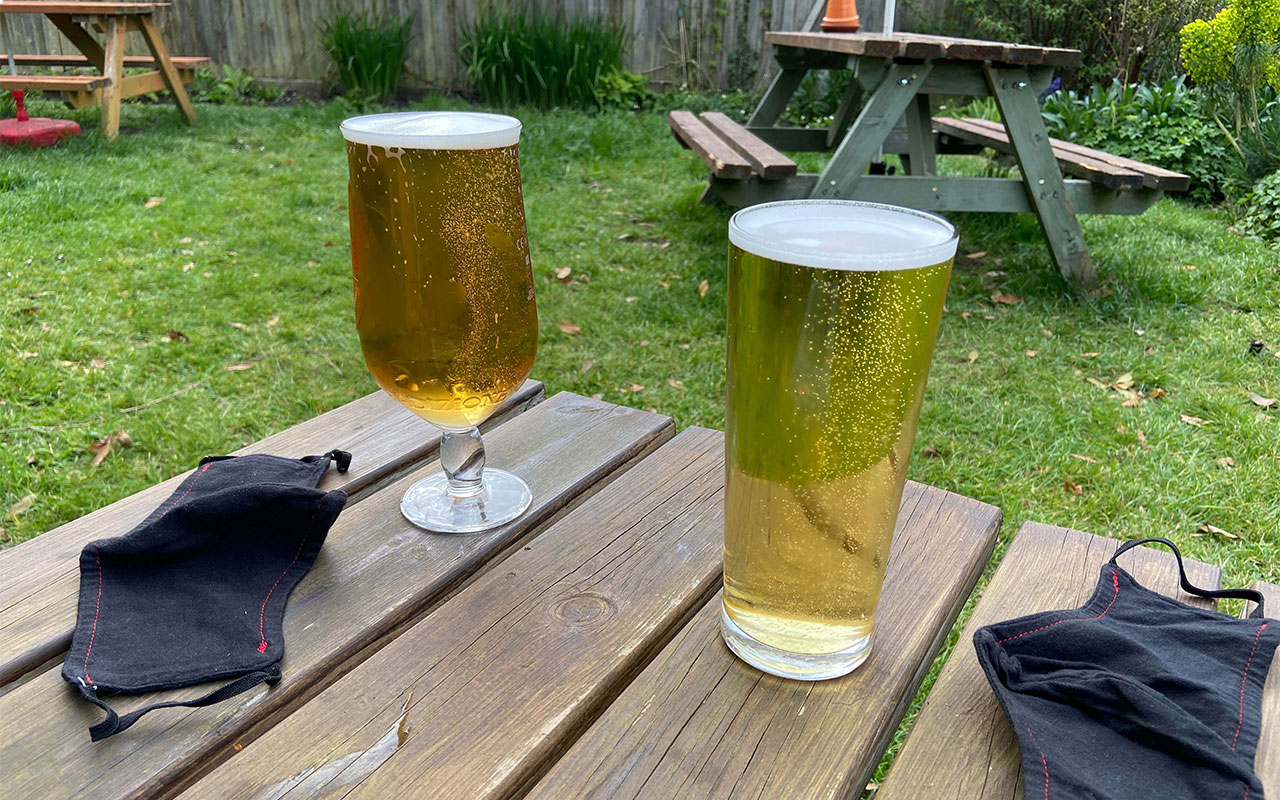Hospitality isn’t helped by guidance that’s treated as law

By Jack Cummins
“A never-ending hell” – of the many descriptions of the catastrophe that had befallen the hospitality sector that’s probably my top pick.
Almost exactly a year ago, the easing of the first lockdown phase saw the re-opening of hospitality. And, despite severe restrictions, it looked like the green shoots of recovery were starting to appear.
At the beginning of September, amusement machines and pool tables were granted a short-lived reprieve (but the playing of dominoes was, and continues to be, considered too risky).
The constantly-changing road map now referred to “certain outdoor live events” being permitted, giving operators the false hope that, subject to licence conditions, these could be staged with two-metre distancing.
Next, in the following month the so-called “circuit breaker” was introduced with a flavour of the micro-management approach that’s become frustratingly familiar. With the exception of the central belt, hospitality indoor opening times were restricted to the period between 6am and 6pm with a ban on alcohol sales.
In the central belt – with a population of around 3.4 million – all licensed premises were required to close, except for licensed cafés, limited to the same trading period and also without the provision of alcohol.
‘Cafégate’ was a particularly unedifying experience: unlicensed cafés filled to the gunnels with customers, and condensation running down the windows, while licensed premises found themselves subject to seemingly arbitrary decisions that they didn’t constitute a ‘café’.
Next up, the levels system likely to be with us for a considerable time to come.
The Health Protection (Coronavirus) (Restrictions and Requirements) (Local Levels) (Scotland) Regulations 2020 – the regulatory engine room, so to speak – has been amended 28 times and now runs to 117 pages, including footnotes referencing the changes.
It provides the Scottish Government with the power to impose and lift curbs on businesses and civil liberties with switch-flicking speed: witness the last-minute decision in mid-May to keep Glasgow in level three.
And despite the plethora of powers conferred by the regulations, businesses must also contend with guidance that’s treated as if it had the force of law.
For example, while the guidance “requests” the collection of contact information from every hospitality visitor, at least one local authority has transformed the request into a legal requirement.
The law hasn’t changed: the obligation is to collect the prescribed information from one member of each household. A few weeks ago, some authorities were forced to retract an instruction to impose a two-hour dwell time on customers.
That, too, had no legal basis. There never was a ban on low-level background sound in regulations – but when the now-relaxed prohibition featured in the statutory guidance those who switched on piped music could expect enforcement action.
What has this rollercoaster journey taught us?
The use of legislation coupled with guidance that’s apt to be misapplied or misinterpreted and often looks irrational or even capricious, has created a framework for the micromanagement of licensed businesses.
As an example of the degree of control exerted over the sector, it seems that a free pie-and-a-pint has had its chips. The offer of that traditional half-time snack during a sports screening amounts to a “promotion”; the broadcast thus becomes an ‘event’; the events sector guidance applies; and the physical distancing requirement moves from one metre to two metres.
Never ending? The end is not in sight. At the time of writing, the Scottish Parliament is expected to approve a bill extending the COVID-19 legislation until 31st March, 2022 with a power to extend the Acts until 30th September 2022.
Jack Cummins is one of Scotland’s leading licensing lawyers. Every month he writes on licensing law and answers readers’ questions in SLTN.
Do you have a legal question for Jack Cummins?
Email sltn@peeblesmedia.com or write to Legal Clinic; freepost PEEBLES MEDIA GROUP
Jack Cummins is unable to enter into personal correspondence on readers’ questions. The advice offered in SLTN is published for information only. No responsibility for loss occasioned by persons acting or refraining from action as a result of material contained in SLTN can be accepted by the author or publisher.




















